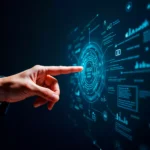In the vast expanse of human history, countless events and discoveries have shaped our world, yet many remain overlooked or forgotten. Among these hidden narratives lies the intriguing concept of “Hizzaboloufazic,” a term that, while not widely recognized, offers a unique lens through which to explore the obscured corners of our past.
Unveiling Hizzaboloufazic: A Brief Overview
The term “Hizzaboloufazic” is not commonly found in mainstream historical discourse. Its origins and specific meanings are elusive, often considered a placeholder for the myriad of forgotten or underrepresented elements in history. By examining what “Hizzaboloufazic” represents, we can delve into the broader theme of overlooked historical narratives and the importance of bringing them to light.
The Significance of Forgotten Histories
History is often written by the victors, leading to a skewed representation of events and cultures. Many civilizations, achievements, and stories have been marginalized or erased due to various factors, including colonialism, cultural suppression, and the passage of time. Recognizing and studying these forgotten histories is crucial for a comprehensive understanding of our collective past.
Examples of Overlooked Historical Narratives
- The Kingdom of Frankland: In the aftermath of the American Revolution, the region now known as Tennessee was briefly an independent state called Frankland. Despite its short existence, it played a significant role in the westward expansion of the United States.
- Onna-Bugeisha: The Female Samurai: Contrary to the male-dominated narrative of samurai culture, women known as Onna-Bugeisha were trained warriors who played vital roles in Japanese history.
- The Dark Year of 536 AD: A volcanic eruption led to a year of darkness and famine, significantly impacting civilizations across Europe and Asia. This event, while catastrophic, is often omitted from mainstream historical accounts.
- The Onion Futures Act of 1958: Following market manipulation by traders, the U.S. government banned the trading of onion futures—a unique instance of commodity-specific legislation.
- The Lost City of Valeriana: Recent Lidar technology uncovered a vast ancient city in Mexico, revealing complex urban planning and challenging previous assumptions about pre-Columbian civilizations.
The Role of Modern Technology in Rediscovering History
Advancements in technology have revolutionized the field of archaeology and historical research. Tools like Lidar, satellite imagery, and digital archiving have enabled researchers to uncover lost cities, analyze ancient texts, and preserve artifacts with unprecedented precision. These technologies are instrumental in bringing forgotten histories, akin to “Hizzaboloufazic,” back into the collective consciousness.
Conclusion
The exploration of “Hizzaboloufazic” serves as a metaphor for the countless stories and achievements that have been overshadowed or forgotten throughout history. By seeking out and studying these narratives, we enrich our understanding of the human experience and ensure that the lessons and legacies of the past are not lost to time.
FAQs
Q1: What does “Hizzaboloufazic” refer to in historical studies?
A1: “Hizzaboloufazic” is not a recognized term in historical academia. It is used here as a symbolic representation of forgotten or overlooked historical narratives.
Q2: Why is it important to study forgotten histories?
A2: Studying forgotten histories provides a more comprehensive and inclusive understanding of the past, acknowledging the contributions and experiences of all cultures and societies.
Q3: How can modern technology aid in uncovering lost histories?
A3: Technologies like Lidar and digital archiving allow researchers to discover and analyze historical sites and artifacts that were previously inaccessible or unknown.
Q4: What are some examples of forgotten historical events?
A4: Examples include the brief existence of the Kingdom of Frankland, the role of female samurai in Japan, and the global impact of the volcanic eruption in 536 AD.
Q5: How can individuals contribute to preserving forgotten histories?
A5: Individuals can support historical research, visit museums, engage with diverse historical narratives, and advocate for inclusive education that acknowledges all facets of history.










